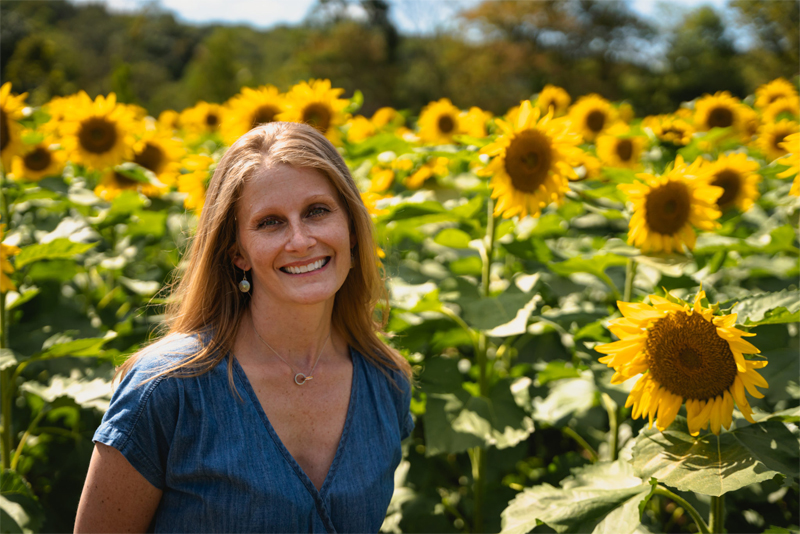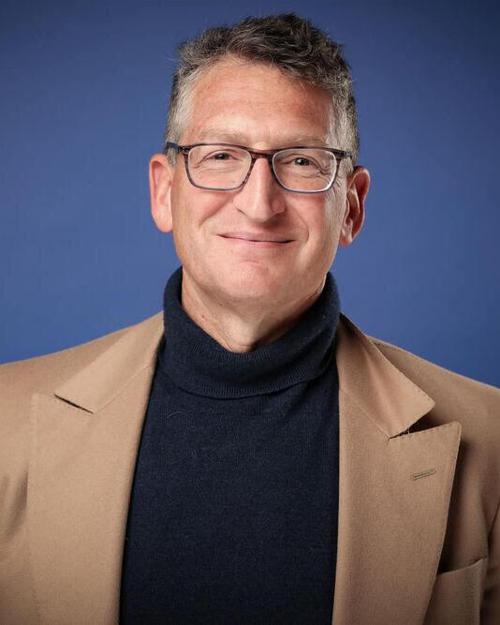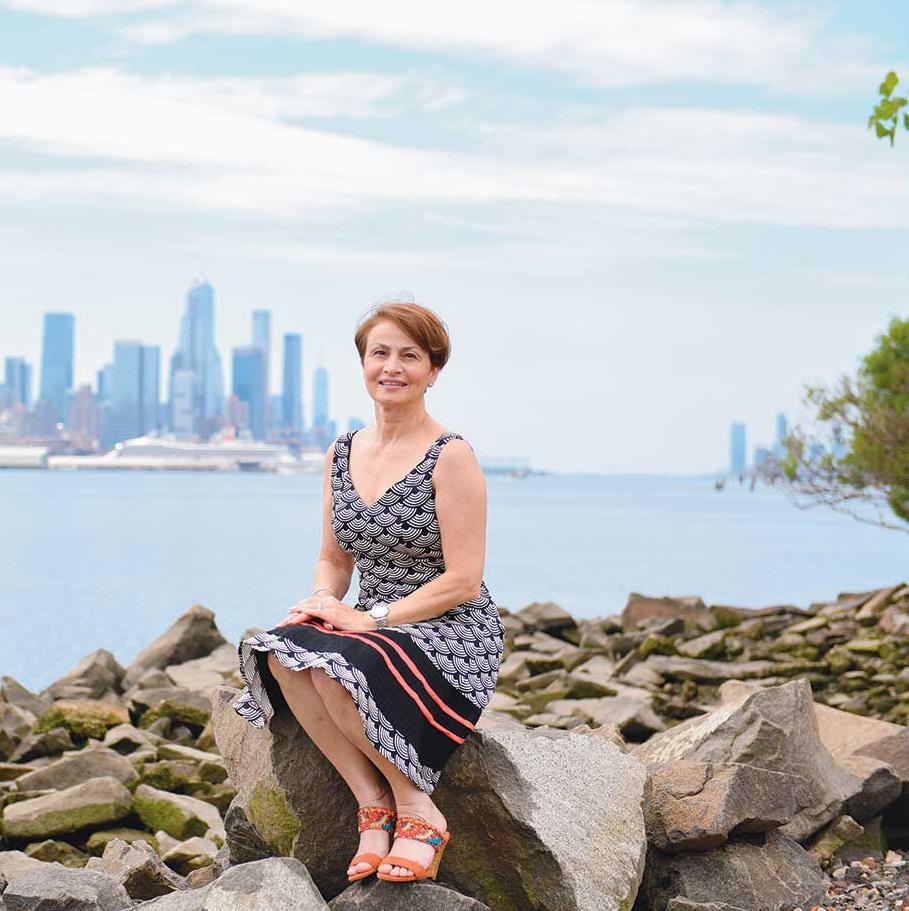44-year-old Woman Overcomes Colon Cancer Thanks to an Early Finding

September 07, 2021
Forty-four-year-old Carey Miller doesn’t smoke, eats a healthy diet and is proactive about her health, making sure to get all the annual screenings her health care provider recommends. So, on an unassuming day in March 2021 when she saw bright red blood in her stool, it caught her attention.
She wasn’t overly concerned at first, but she knew from reading online that bright red blood in feces could be an indicator of colorectal cancer. Even though she knew of no colorectal cancer history in her family, she decided to keep a watch on it. From her reading, she knew that rates of colorectal cancer in people younger than 50 have been increasing, which recently prompted the U.S. Preventative Services Task Forceto recommend beginning screening for colorectal cancer at age 45 instead of age 50.
When the blood continued to show up in her stool, she set up an appointment with a gastroenterologist, which was scheduled for a Friday in mid-April. The gastroenterologist recommended a colonoscopy, which she had four days later. Cancer was found in one polyp. “I feel like I’m pretty healthy,” says Carey, who lives in Little Falls, New Jersey. “So it was really a surprise.”
Multidisciplinary Care
An endoscopic ultrasound was scheduled with Rosario Ligresti, M.D., chief of the gastroenterology division at Hackensack University Medical Center, in late May. The endoscopic ultrasound provided a detailed visualization of the tumor so that the multidisciplinary team at the hospital could understand how deep and large it was and whether the cancer had spread to any lymph nodes.
“We were able to get all the staging information and then connect her to the appropriate management team—the surgeons and oncologists—pretty quickly,” Dr. Ligresti says. With the staging information and the input of the multidisciplinary team, “you really have a good picture of the tumor in the best possible way before you get to the operating room.”
Because Carey had a small, localized tumor, the multidisciplinary team assessed that she didn’t need chemotherapy or radiation to shrink the tumor before surgery; she could go directly to surgery, which she did. In early June, she had a minimally invasive laparoscopic surgery that removed the cancerous tumor and more than 50 lymph nodes. She was able to go home two days later.
Her surgeon, Howard Ross, M.D., removed all of the cancer so she didn’t need any radiation or chemotherapy following surgery either. She will need annual colonoscopies going forward. After her surgical incisions healed, she returned to her regular routines and diet without any restrictions.
“I’m just thankful,” she says. “This could have been so much worse if not caught early. And I can’t say enough about Hackensack. My stay there was great. The nurses—all of the hospital staff—were just wonderful. They made a stressful time a little bit easier to deal with because everyone was so caring and sympathetic.”
Next Steps & Resources:
- Meet our source: Rosario Ligresti, M.D.
- To make an appointment with Rosario Ligresti, M.D. or another provider, call 800-822-8905 or visit our website
The material provided through HealthU is intended to be used as general information only and should not replace the advice of your physician. Always consult your physician for individual care.








